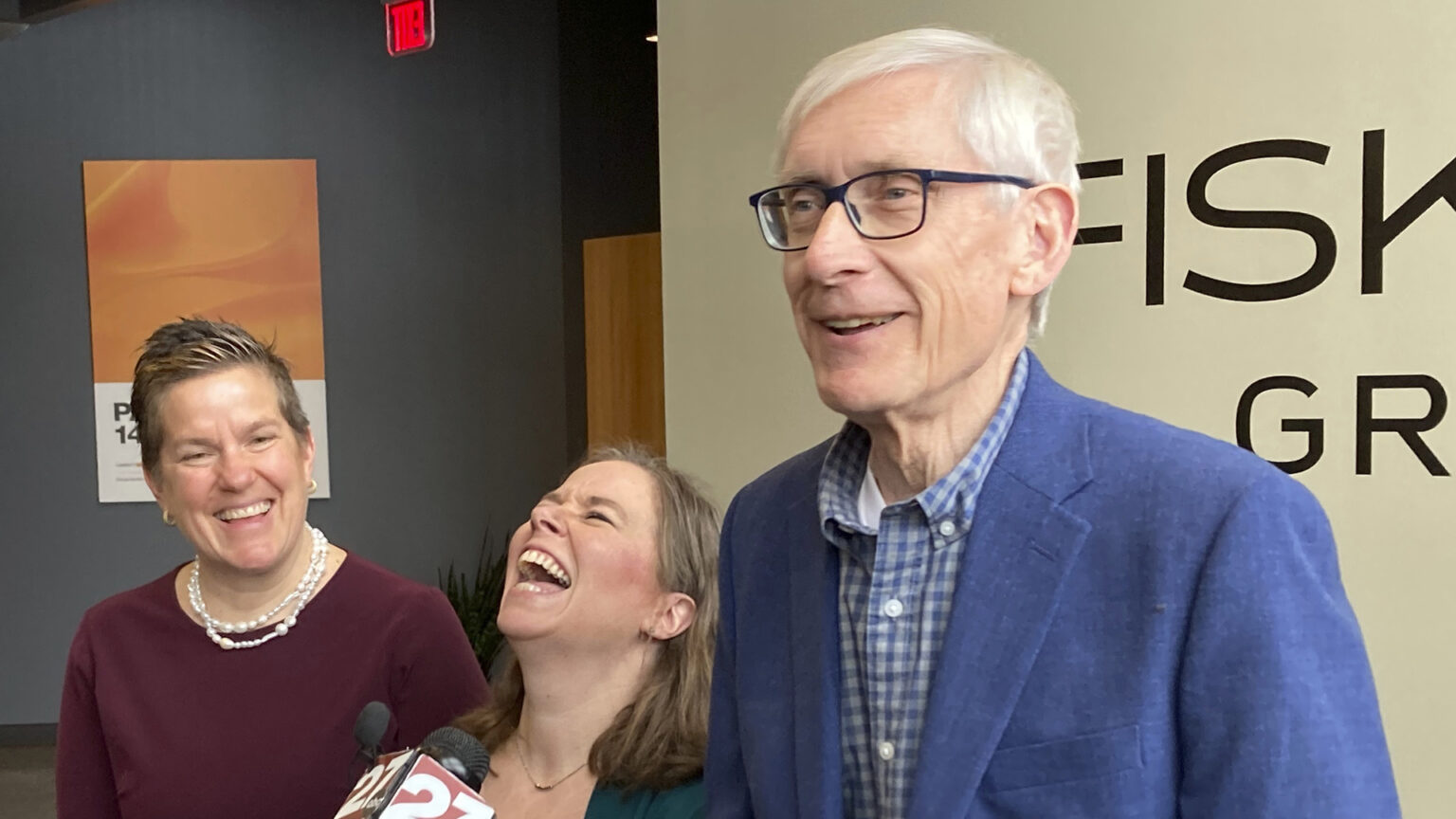Evers promotes Wisconsin paid leave proposal, downplays Republican criticisms
Wisconsin Gov. Tony Evers said he hopes to talk with Republicans to make paid leave happen — his plan comes with a $240 million price tag for the state in its first year, before being paid for by employee and employer contributions thereafter.
Associated Press
February 16, 2023

Wisconsin Gov. Tony Evers, right, along with Lt. Gov. Sara Rodriguez, center, and state economic development director Missy Hughes, left, makes a pitch for his paid family leave proposal following a tour of scissors-maker Fiskars Group in Middleton on Feb. 16, 2023. (Credit: AP Photo / Scott Bauer)

MADISON, Wis. (AP) — Democratic Gov. Tony Evers said Feb. 16 that Republicans in control of the Wisconsin Legislature should be open to his idea of funding a new three-month family leave program covering most private-sector workers, arguing that it would help with recruitment and retainment efforts.
Evers, who toured scissors-maker Fiskars Group in Middleton the morning after unveiling his budget, downplayed comments from Republican leaders dismissing the idea of guaranteeing 12 weeks of paid family and medical leave.
“We’re hopeful we’ll get some traction around this,” Evers said. “Let’s start having the conversation.”
Senate Majority Leader Devin LeMahieu said Feb. 16 that it was “very doubtful” Republicans would support Evers’ plan, which comes with a price tag of $240 million in state funding to launch in 2025. Employer and employee contributions would fund the initiative after the first year.
Evers argued that Wisconsin could do more to offer paid leave and that Republicans should not just dismiss the idea out of hand.
“Democracy, I think, kind of demands more than just saying, ‘Well, we don’t like it,'” Evers said. “Well, here at Fiskars they do like it. There’s many other states in this country that do like family leave and provide some of the money to make that happen.”
According to the Bipartisan Policy Center, 13 states have enacted paid family leave laws.
Republican leaders have said they want to pass policies that will recruit and retain more workers in the state, but they hope to do that primarily by moving to a flat income tax rate — a move that Evers has promised to veto.
LeMahieu said Feb. 16 that Wisconsin’s family and leave laws are already “above and beyond what the federal standard is.” But that’s not the case in most scenarios. Federal law offers Wisconsin workers up to 12 weeks of leave each year, as opposed to an 8-week maximum under state law.
There are a narrow set of circumstances in which state leave adds to what federal law offers, such as for couples working for the same employer or employees who work more than 1,000 hours but less than 1,250 in a year. Wisconsin’s program also has looser requirements for when leave can be used sporadically and doesn’t allow employers to consider earned time off as part of a family or medical leave.
Michael Pyritz, LeMahieu’s spokesperson, told The Associated Press that the senator was referring to those areas where there are fewer restrictions when he called the state program more generous than what federal law requires.
Most workers at businesses with more than 50 employees qualify for state and federal leave benefits.
Under Evers’ plan, workers would continue to receive a paycheck while caring for a sick family member or a newborn. Current state and federal laws only require businesses to continue offering health insurance to employees on leave.
The Legislature will rewrite the budget before sending it back to Evers, who can revise it with his partial veto powers.
Harm Venhuizen is a corps member for the Associated Press/Report for America Statehouse News Initiative. Report for America is a nonprofit national service program that places journalists in local newsrooms to report on undercovered issues. Follow Harm on Twitter.
 Passport
Passport











Follow Us